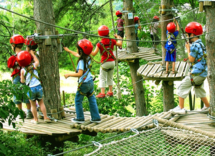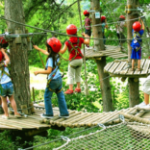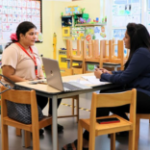
Field trips have long been a cherished part of school life, offering students a break from the traditional classroom setting. For young learners, especially in their formative years, field trips are more than just an opportunity to get out of school—they serve as powerful educational tools that enhance learning, foster curiosity, and promote personal growth.
1. Hands-On Learning Experiences
One of the most significant benefits of field trips is the opportunity for hands-on learning. Young children are naturally curious and learn best when they can interact directly with their environment. Whether it’s visiting a zoo, a science museum, or a botanical garden, field trips provide a tactile learning experience that books and screens can’t replicate. Touching, seeing, and hearing in real-time help solidify concepts and create lasting memories.
2. Real-World Connections
Field trips help bridge the gap between classroom lessons and the real world. When students visit historical landmarks, nature parks, or factories, they can see firsthand how what they learn in school applies to everyday life. For example, a trip to a local farm helps children understand where their food comes from, making lessons in science and health more meaningful. These real-world connections deepen understanding and inspire further inquiry.
3. Development of Social Skills
Young learners develop essential social skills during field trips. Being outside the classroom environment encourages children to interact more freely with their peers, teachers, and even new people they meet during the excursion. They learn to communicate, collaborate, and follow instructions in diverse settings. Activities like group discussions, team games, or problem-solving challenges during trips help strengthen teamwork and leadership skills.
4. Encouragement of Curiosity and Creativity
Field trips stimulate curiosity and ignite creativity. When children are exposed to new environments and experiences, they begin to ask questions and think critically. A visit to an art museum might inspire a young learner to create their masterpiece, while a science center could spark an interest in experiments and discovery. These moments of inspiration play a crucial role in developing a child’s creative thinking skills.
5. Break from Routine and Stress Relief
A change in environment can do wonders for a child’s mental and emotional well-being. Field trips offer a refreshing break from the daily classroom routine, reducing stress and boosting morale. The excitement of exploring new places, combined with the joy of shared experiences with friends, makes field trips a memorable and joyful part of school life.
6. Building Independence and Responsibility
Field trips also teach young learners about independence and responsibility. Simple tasks like packing their bags, managing their belongings, and following schedules help children develop organizational skills. They also learn about safety, such as staying with the group and following rules, fostering a sense of responsibility and self-discipline.
7. Exposure to New Cultures and Perspectives
Trips to cultural centers, heritage sites, or multicultural events expose children to diverse traditions and ways of life. Such experiences cultivate empathy, respect, and open-mindedness in young learners. Understanding different cultures early on helps build a foundation for inclusive and tolerant attitudes as they grow.
8. Enhancing Academic Learning
Field trips are not just fun outings; they are structured learning experiences that complement the academic curriculum. Teachers often design pre-trip and post-trip activities, such as worksheets, discussions, or creative projects, to reinforce what was learned. This multi-faceted approach ensures that the educational value of the trip extends beyond the day of the visit.
Summary
Field trips play a vital role in the holistic development of young learners. They provide hands-on learning, foster social skills, ignite curiosity, and offer a refreshing break from the routine classroom environment. At Tiny Tots English School, Pimpri-Chinchwad, Pune, we believe that learning extends beyond the four walls of a classroom. Our thoughtfully planned field trips ensure that students gain real-world experiences that enrich their academic journey and personal growth. By exposing children to diverse environments and practical knowledge, we help them become curious, empathetic, and well-rounded individuals ready to explore the world.




